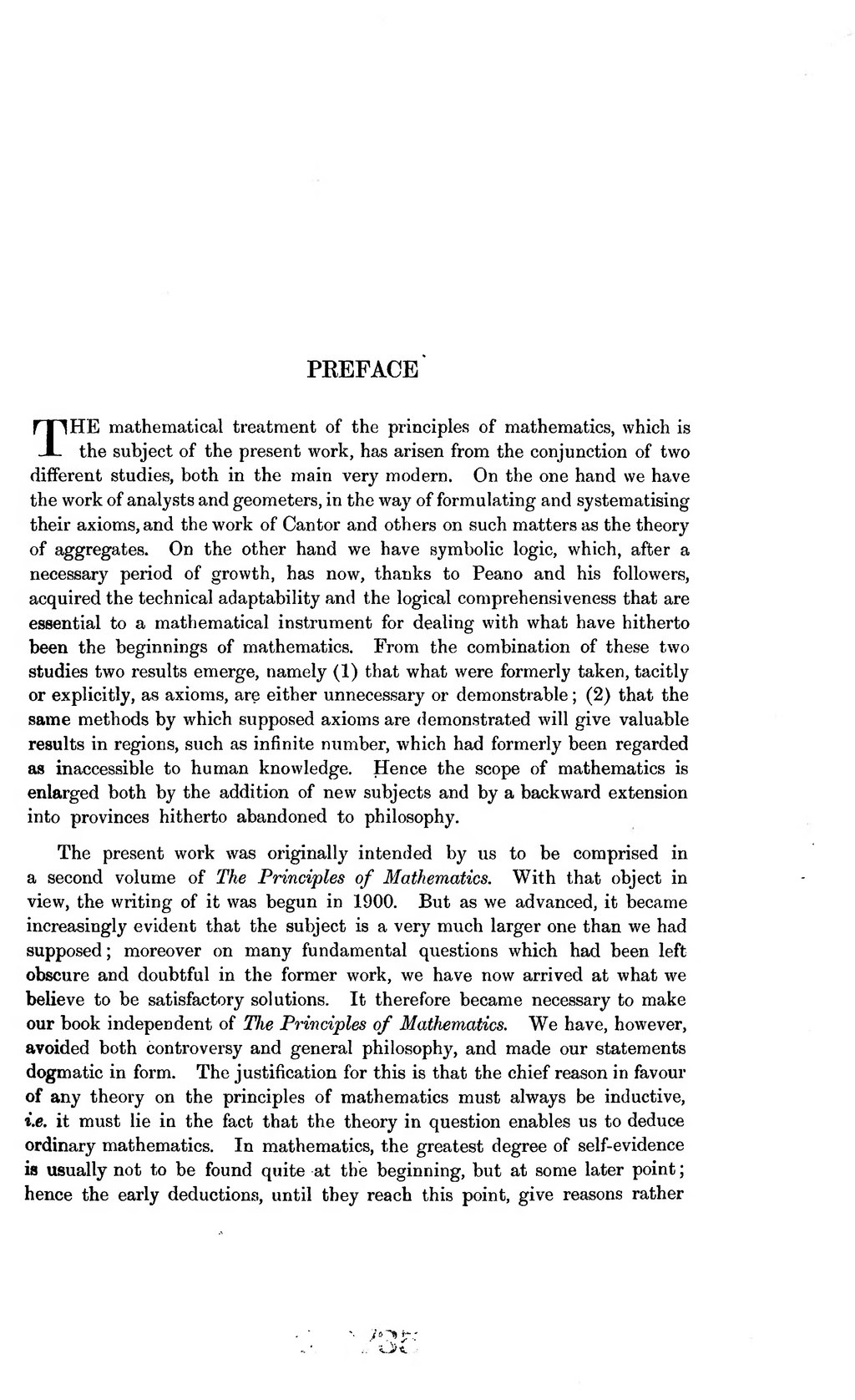The mathematical treatment of the principles of mathematics, which is the subject of the present work, has arisen from the conjunction of two different studies, both in the main very modern. On the one hand we have the work of analysts and geometers, in the way of formulating and systematising their axioms, and the work of Cantor and others on such matters as the theory of aggregates. On the other hand we have symbolic logic, which, after a necessary period of growth, has now, thanks to Peano and his followers, acquired the technical adaptability and the logical comprehensiveness that are essential to a mathematical instrument for dealing with what have hitherto been the beginnings of mathematics. From the combination of these two studies two results emerge, namely (1) that what were formerly taken, tacitly or explicitly, as axioms, are either unnecessary or demonstrable; (2) that the same methods by which supposed axioms are demonstrated will give valuable results in regions, such as infinite number, which had formerly been regarded as inaccessible to human knowledge. Hence the scope of mathematics is enlarged both by the addition of new subjects and by a backward extension into provinces hitherto abandoned to philosophy.
The present work was originally intended by us to be comprised in a second volume of The Principles of Mathematics. With that object in view, the writing of it was begun in 1900. But as we advanced, it became increasingly evident that the subject is a very much larger one than we had supposed; moreover on many fundamental questions which had been left obscure and doubtful in the former work, we have now arrived at what we believe to be satisfactory solutions. It therefore became necessary to make our book independent of The Principles of Mathematics. We have, however, avoided both controversy and general philosophy, and made our statements dogmatic in form. The justification for this is that the chief reason in favour of any theory on the principles of mathematics must always be inductive, i.e. it must lie in the fact that the theory in question enables us to deduce ordinary mathematics. In mathematics, the greatest degree of self-evidence is usually not to be found quite at the beginning, but at some later point; hence the early deductions, until they reach this point, give reasons rather
